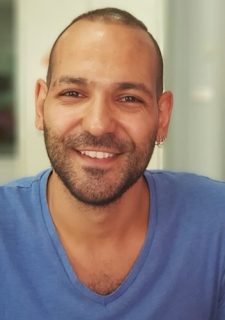As a global society, we rely upon 570,000 humanitarian aid workers to bring security, comfort and basic services to more than 131 million people in need, including over 68 million refugees displaced by conflict and insecurity. Relief workers operating on the front lines of humanitarian response are routinely exposed to stress and chaos, and as a result, the sector continues to shoulder a largely overlooked mental health crisis.
Working in countries affected by war and natural disasters is inherently stressful, yet aid workers also face a layer of psychological vulnerability which is exacerbated by the lack of adequate training, support and management for such issues. The failure to adequately prepare and support staff has enormous negative consequences at three levels:
- Individual humanitarian aid workers suffer increased trauma and stress levels, perform under their potential, get burned out and leave the field earlier.
- Humanitarian organisations operate less efficiently, with higher costs for insurance and medical care, and high staff turnover causing loss of institutional knowledge and inflated recruitment costs.
- Populations in need receive a lower quality of care from agencies with high staff turnover and aid workers who are over-stressed, less experienced and under-trained.
Through this event, we explore more around the need for support amongst humanitarian aid workers in relation to stress management. We ask: what are the main stressors experienced by aid workers, and how does stress impact them? What are the potential routes to resilience, both at the individual and organisational level? What duty of care do organisations have in relation to the wellbeing of their staff?
SPEAKERS
- Daniel Siegel –as one of the world’s leading neuropsychiatrists, Dr Siegel focuses on exploring how human consciousness can evolve to meet the unprecedented challenges we face in today’s world. He is a clinical professor of psychiatry at the UCLA School of Medicine and the founding co-director of the Mindful Awareness Research Center at UCLA.
- Helen Barley – has worked in the international humanitarian sector for over 10 years, with a focus on managing protection, education and psychosocial support interventions for crisis affected populations. Helen is the Programme Director of the Contemplative Based Resilience (CBR) Project of the Garrison Institute International, which aims to develop a more resilient and compassionate humanitarian aid sector.
- Lya Jawad – is from Lebanon and for the last six years has worked with local and international non-governmental organisations (NGOs) in Lebanon, Syria, Afghanistan, Iraq and Turkey. Her work in the humanitarian field focused on gender based violence, psychosocial support, child protection and empowering the LGBTQIA community to strengthen their resilience.
Moderator for the event is Sander Tideman. He is an executive coach, teacher and author, with a focus on leadership transitions and strategic change. He is also Executive Director of Garrison Institute International, which implements the Contemplative Based Resilience (CBR) programme for humanitarian aid workers.
Event is co-organised by Garrison Institute International and Hague Humanity Hub.


